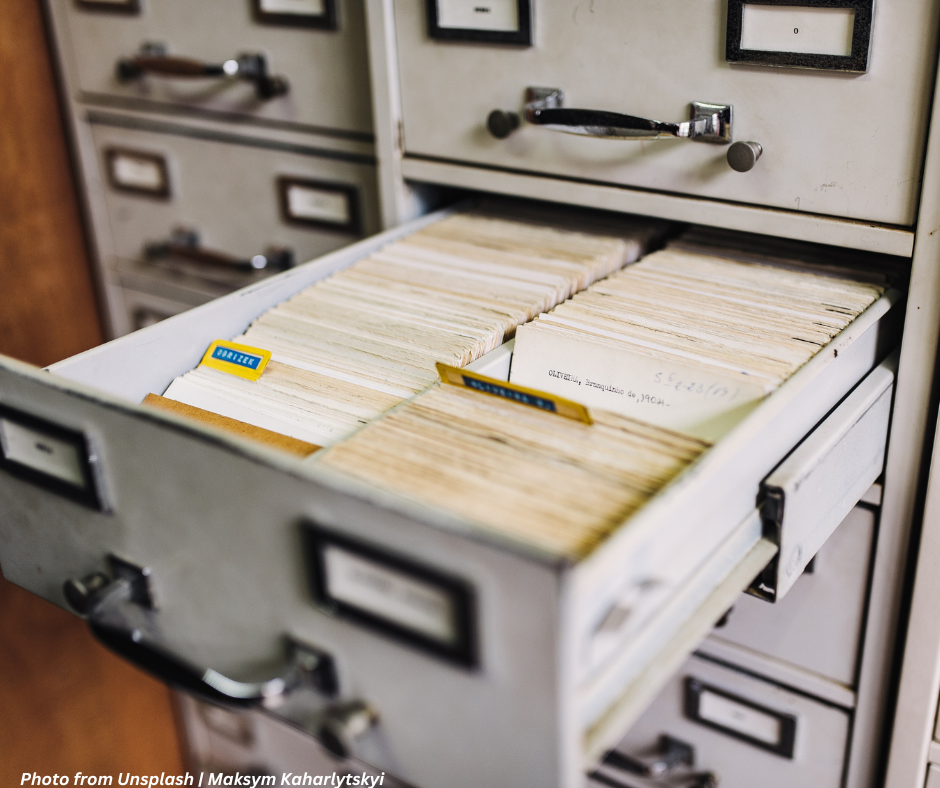
Photo from Unsplash | Maksym Kaharlytskyi
The following post does not create a lawyer-client relationship between Alburo Alburo and Associates Law Offices (or any of its lawyers) and the reader. It is still best for you to engage the services of a lawyer or you may directly contact and consult Alburo Alburo and Associates Law Offices to address your specific legal concerns, if there is any.
Also, the matters contained in the following were written in accordance with the law, rules, and jurisprudence prevailing at the time of writing and posting, and do not include any future developments on the subject matter under discussion.
AT A GLANCE:
Corporate records can be inspected by any director, trustee, stockholder or member of the corporation, in person or by a representative, at reasonable hours on business days. A demand in writing may be made to request copies at the expense of the requesting party. (Section 73, Revised Corporation Code)
Corporate records
Before the Revised Corporation Code took effect, companies were required to keep a record of all business transactions and minutes of all their meetings. The coverage corporate records has been expanded under the Revised Corporation Code to include the following:
a) The articles of incorporation and bylaws of the corporation and all their amendments.
b) The current ownership structure and voting rights of the corporation, including lists of stockholders or members’ group structures, intra-group relations, ownership data, and beneficial ownership.
c) The names and addresses of all members of the board of directors or trustees and executive officers;
d) A record of all business transactions.
e) A record of the resolutions of the board of directors or trustees and of stockholders or members;
f) Copies of the latest reportorial requirements submitted to the Securities and Exchange Commission.
g) The minutes of all meetings of stockholders or members, or of the board of directors or trustees. (Section 73, RCC)
In addition to the foregoing, under Section 237 of the Tax Code (as amended by the TRAIN Law), books of account, original, and duplicate originals of invoices and receipts for goods and services purchased are likewise deemed as corporate records.
Corporate records likewise include all other records as may be required under other applicable laws.
Right to inspect corporate records
Only the directors, trustees, and stockholders of the corporation or their representatives have the right to inspect corporate records. A requesting party who is not a stockholder, nor authorized by such stockholder, shall have no right to inspect or demand the reproduction of these records.
The right to inspect corporate records is based on a stockholder’s interest in the corporation and ownership of corporate property.
Section 73 of Republic Act No. 11232 or the Revised Corporation Code (RCC) provides that corporate records can be inspected by any director, trustee, stockholder or member of the corporation, in person or by a representative, at reasonable hours on business days, and a demand in writing may be made to request copies at the expense of the requesting party.
Question: Are the heirs of a deceased stockholder automatically entitled to same rights and privileges?
Answer: No. As held in the case of Puno vs. Puno Enterprises Inc. (G.R. 177066, Sept. 11, 2009), the right to inspect may be exercised only by a stockholder of record. Upon the death of a stockholder, his or her heirs do not automatically become stockholders. As such, they are not mandatorily entitled to the rights and privileges of the deceased stockholder.
Question: Does a stockholder need to present his or her stock certificate to be allowed access to and inspection of corporate records?
Answer: No. In the case of Insigne vs. Abra Valley Colleges Inc. (G.R. 204089, July 29, 2015), the Supreme Court allowed shareholders to inspect the corporate books and records, even though there were no stock certificates proving their stock ownership, since they had presented sufficient proof that they subscribed to the firm’s shares, even though their subscription was not yet fully paid.
Read also: TRANSFER OF PUBLIC RECORDS
Alburo Alburo and Associates Law Offices specializes in business law and labor law consulting. For inquiries regarding taxation and taxpayer’s remedies, you may reach us at info@alburolaw.com, or dial us at (02)7745-4391/0917-5772207.
All rights reserved.

